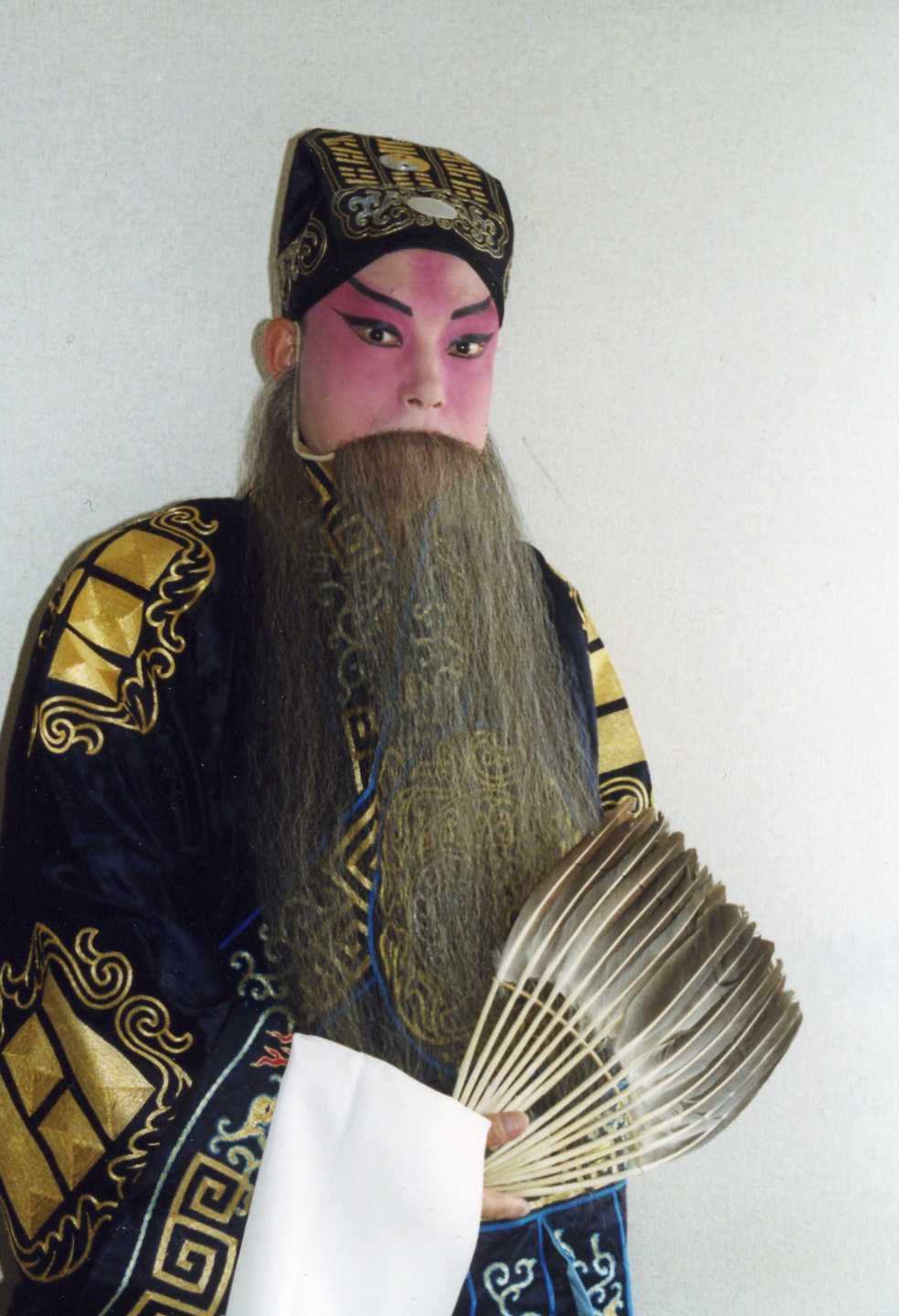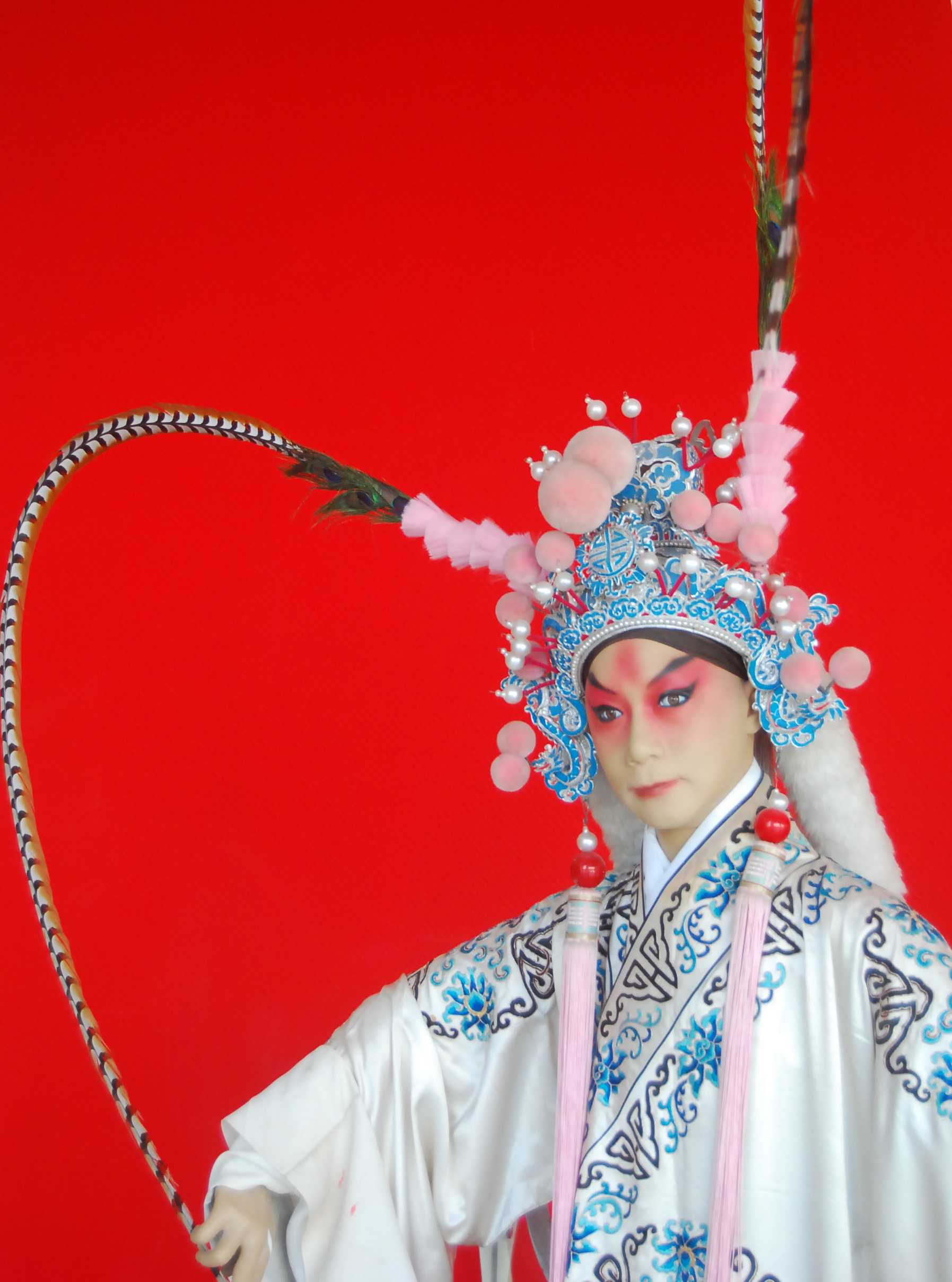Lao Sheng on:
[Wikipedia]
[Google]
[Amazon]
The is a role type in

 The has numerous subtypes. The two major subdivisions are the (older gentlemen) and (younger gentlemen), with another important subtype being the (martial men). Peking opera troupes will always have a actor. A actor may be added to play roles fitting to his age. In addition to these main , the troupe will also have a secondary .
The has numerous subtypes. The two major subdivisions are the (older gentlemen) and (younger gentlemen), with another important subtype being the (martial men). Peking opera troupes will always have a actor. A actor may be added to play roles fitting to his age. In addition to these main , the troupe will also have a secondary .
Chinese opera
Traditional Chinese opera (), or ''Xiqu'', is a form of musical theatre in China with roots going back to the early periods in China. It is an amalgamation of various art forms that existed in ancient China, and evolved gradually over more tha ...
for dignified and respectable male characters such as Confucian
Confucianism, also known as Ruism or Ru classicism, is a system of thought and behavior originating in ancient China. Variously described as tradition, a philosophy, a Religious Confucianism, religion, a humanistic or rationalistic religion, ...
scholars, nobles, or heads of households. They may be portrayed by either male actors or actresses.
Subtypes

The () is a dignified older role, usually distinguished by a long, thin, three-part beard. These characters have a gentle and cultivated disposition and typically wear long robes with
water sleeves
Water sleeves () refer to white silk extensions to the cuff of garment sleeves used in Chinese opera. They are worn by both male and female characters of the higher social class. They are so named because performers can use them to produce moveme ...
, high-soled boots, and fabric headdresses.
A subcategory is (), older generals who have combat skills. They wear armors and helmets instead of robes and fabric hats. Guan Yu, the Chinese god of sworn brotherhood, loyalty and righteousness, and Zhao Kuangyin, the first Song dynasty
The Song dynasty (; ; 960–1279) was an imperial dynasty of China that began in 960 and lasted until 1279. The dynasty was founded by Emperor Taizu of Song following his usurpation of the throne of the Later Zhou. The Song conquered the rest ...
emperor, are the only two characters in the subcategory known as (), a red-faced older male.
Young, beardless male characters are known as (). They wear paler makeup than characters to show their youth. characters are often involved with beautiful young women by virtue of the handsome and young image they project. Depending on the character's rank in society, the costume of the may be either elaborate or simple. In Peking opera, these characters sing in a high, shrill voice with occasional breaks to represent the voice changing period of adolescence. The subcategories of are the () and the (). The roles possess martial skills and are frequently young generals. Often, their filigree helmets are appended with two long pheasant feathers known as ().
The () is a martial character for roles involving combat. They are highly trained in acrobatics, and have a natural voice when singing. In Peking opera, is further divided into two subcategories based on the character's costume: *The () are high-ranking warriors who wear armor (, ), helmets, and high-soled boots. They mainly use prop weapons. *The () are individual fighters or disenfranchised criminals who wear tight jackets and trousers known as () or () and thin-soled boots. Some of them wear a beret known as (). They are more likely to engage in hand-to-hand combat.
Cross-gender acting
In Yue opera, roles have been mainly portrayed by actresses. Actresses playing men () is also common in some southern genres likeTeochew opera
Teochew opera or Chaozhou opera, Chiuchow opera (especially in Hong Kong), is one of the many variants of Chinese opera, originating in southern China's Chaoshan region. It is popular in eastern Guangdong, southern Fujian, Hong Kong, Macau, Thailan ...
and Taiwanese opera. It also appears in Ping opera.
In Peking opera, Meng Xiaodong was perhaps the first female superstar who specialized in roles.
References
{{Chinese opera roles Chinese opera role types Male stock characters